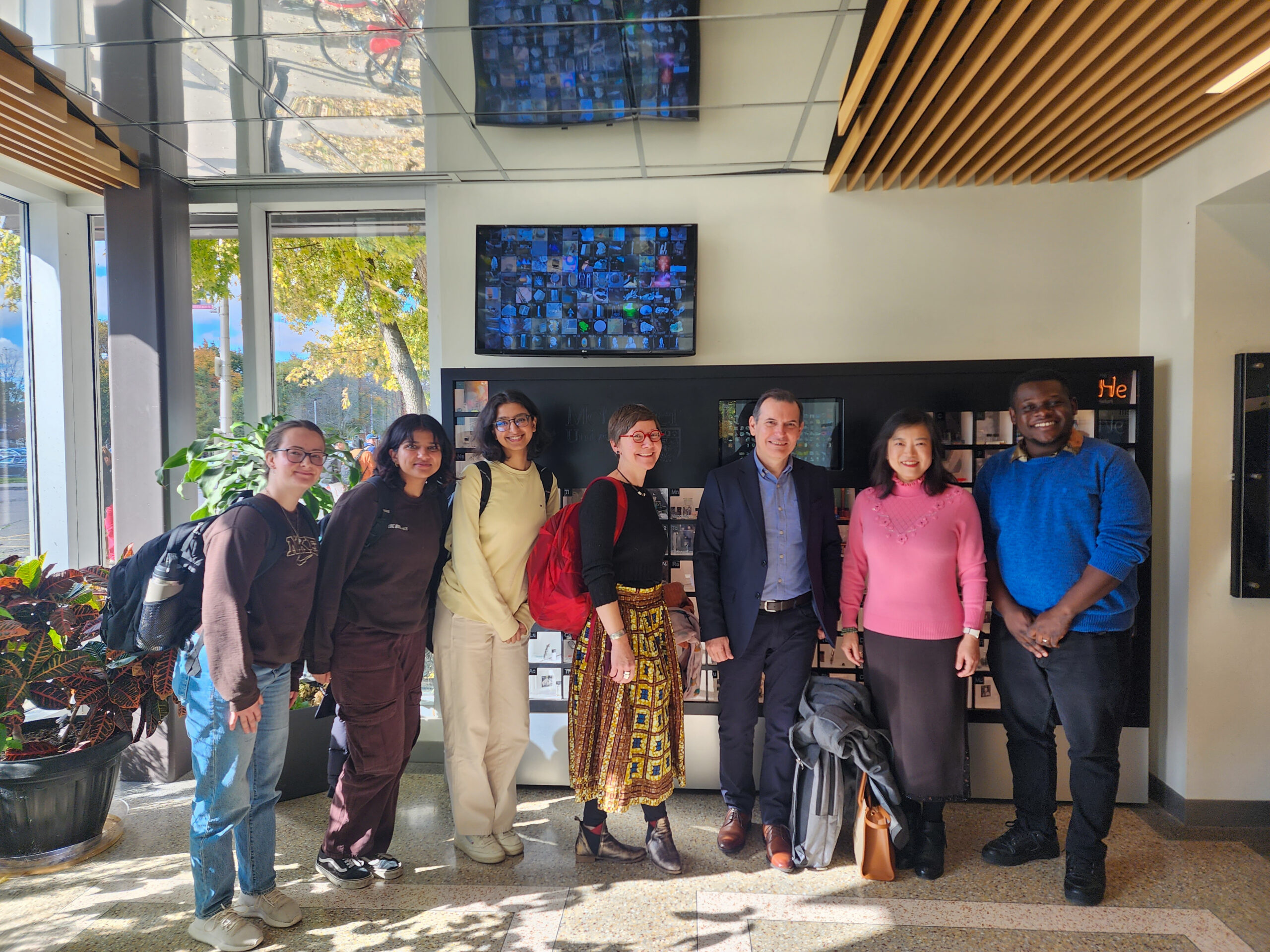The Making of The Arctic – A Global Health Perspective

The Arctic is an interesting place. To some people it is a frontier or hinterland, others may imagine a polar bear on an ice floe and to those who live there, the Arctic is home.
As a student in the MSc in Global Health at McMaster University writing my master’s thesis, the Arctic is my area of research. Over the past year, I’ve immersed myself in literature published by Inuit organizations to understand Inuit perspectives on Arctic Ocean governance. That’s how I became involved with The Arctic – A Global Health Perspective.
Post-secondary education about health in Arctic is minimal. Globally, there are few courses or programs dedicated to health in the circumpolar north. Here in Canada, we only have one University in the Arctic! This series was inspired and designed in partnership with Dr. Andrea Baumann and the McMaster Global Health office to help fill that gap. In September of 2020, I began looking through my notes and references to develop a list of people who are experts on the Arctic. By the end of the year we were getting in touch with experts from across the North, soliciting their participation in our webinar series.
The webinar series brings together experts from scholars, diplomats, and business leaders from a range of disciplines and will be providing their perspectives and a short question and answer period after their presentations. We will hear from speakers from universities in Canada and Norway, the Arctic Council’s Sustainable Development Working Group, and the Canadian Northern Development Agency are represented.
But… why is this even important? Why the Arctic, and why now?
You may be familiar with the problem framing. The circumpolar north is changing, very rapidly. Climate change is a stark reality in the circumpolar north, an issue Inuit have warned of for decades. Disappearance of sea ice, coastal erosion, and shifts in species distribution and health are highly visible impacts. What follows is increased accessibility to a region that was previously insulated from outsiders by thick layers of ice. But that’s just one type of change that faces the region.
The Arctic is no doubt increasing in geopolitical importance. Greater feasibility of a natural resource economy in the region is apparent, too. We’ve already seen increased shipping, mining, and resource development since the turn of the century. Combined with inequities of social, health and infrastructure systems, we’re in a situation where the Arctic bound towards unique political, economic and ecological transitions.
The transformative impact of these changes, I can hardly begin to grasp. That’s why we’ve called in the experts! We will have the opportunity over the 10 webinar series, to hear transdisciplinary perspectives on key global health challenges and opportunities in the circumpolar north, open to the public!
As we raise our collective gaze to the north, The Arctic – A Global Health Perspective addresses many questions that may come to mind.
How will environmental change and sea ice melt impact food security?
What is the impact of Covid?
How can community-engaged research support local livelihoods?
If any of these questions pique your interest, please follow this link for more information including a full schedule and registration.
https://globalhealth.healthsci.mcmaster.ca/arctic-global-health-series
Jeffrey McLean, MSc Global Health Candidate
Student BlogRelated News
News Listing

November 12, 2024

November 5, 2024

Pollution, Power, and Protest: Unpacking Environmental Racism from Africville to Wet’suwet’en
Student Blog
October 10, 2024
